This post is part of series by Brookings experts on Trump’s 1st State of the Union.
When President Trump delivers his State of the Union address next week, there will be plenty of issues to cover. One likely to be overlooked, but in need of presidential clarity, is marijuana policy. It is not the most high-profile issue, but a few sentences would help reconcile the president’s campaign promises with the actions of his administration.
On the 2016 campaign trail, Mr. Trump didn’t shy away from questions about marijuana. (It is worth noting that marijuana initiatives shared a ballot with Mr. Trump in nine states in 2016.) He noted in an interview with Fox News that he knew people who were helped by medical marijuana and that he supported it “100 percent,” and suggested he was in favor of more research into the effects of marijuana. In another interview with a local Colorado television station, he noted that recreational marijuana policy “should be up to the states” and that he opposed federal intervention in legal states.
Those were explicit campaign promises. Since then, the Trump administration has actively undermined the president’s promises. His first State of the Union is a way to correct course, or admit that he has changed his mind entirely on these issues. With 29 states and D.C. with legal medical marijuana programs and nine states and D.C. with recreational marijuana reforms, huge numbers of Americans are looking to know what the president really thinks.
If Mr. Trump truly believes in the promises he made during the campaign, his speech next week is an opportunity to scold Attorney General Jeff Sessions for rescinding the Cole Memo that offered protections to states that have legalized recreational marijuana (and companies within those states who are playing by the state rules). He can publicly oppose Mr. Sessions’ explicit request to Congress to rescind the Rohrabacher-Blumenauer amendment that restricts the Justice Department from spending funds to enforce against state-legal medical marijuana operations. He can ask Congress to rescind the Harris Amendment that prevents the District of Columbia from implementing its recreational legalization initiative—a congressional decision that has left D.C. with a legal homegrow system but no power to construct a regulatory system for commercial sales.
Mr. Trump can go further and signal to Treasury Secretary Steve Mnuchin—who will likely be sitting a few yards in front of him—that the Treasury Department should strengthen protections for banks working to keep the marijuana industry accountable and transparent, and he can ask Congress to put those protections into law. Mr. Trump knows better than any president in history how important access to financial services are for an individual starting and building a business.
Mr. Trump can talk about marijuana research. He can disavow his VA Secretary’s recent statements about medical research. Secretary Shulkin first said—incorrectly—that his department was restricted from studying marijuana’s medical efficacy. He subsequently and messily “cleaned up” his statement by saying that studying marijuana was too bureaucratically difficult for his department to pursue. As a vocal supporter of our troops and someone committed to helping our injured veterans, President Trump can demand that the VA Secretary change his tune.
And he can do much more. He can tell the HHS Secretary to review and remove the barriers that hinder our nation’s most talented medical and scientific researchers from studying marijuana’s efficacy, dosing, and side effects. He can demand that Attorney General Sessions stop stalling with the approval of new licenses for regulated, research-grade facilities to grow marijuana for use in federally approved research—breaking the monopoly currently held by the University of Mississippi’s marijuana farm. He can tell Congress that because most of their constituents live in states with medical marijuana programs, they should increase funding for such research, including promising research into whether medical marijuana can be used to combat the opioid crisis.
This is, of course, a lot to ask of a president on an issue that does not command top-tier attention. What’s more, because his administration seems to have no interest in this policy area—and several appointees explicitly oppose marijuana—there does not seem to be an agency head or cabinet member who will lobby the White House to include language on marijuana policy in the speech. Without having a high-level ally on the issue, marijuana is unlikely to be addressed.
Yet, a president talking about a drug policy in a manner that came out of left field would not be unprecedented. In 2004, President Bush delivered a State of the Union that predictably focused on war, terrorism, and other foreign policy issues. Toward the end of his speech, Mr. Bush detoured and discussed steroids in baseball. The move was unexpected. The issue was minor (particularly compared to a significant issue of federalism like marijuana policy). Yet, Mr. Bush did not feel the stage was too grand for the issue to be mentioned.
Mr. Trump has a similar opportunity.
One year ago in his inaugural speech, Mr. Trump committed to letting the public will be the engine that powers American public policy. He stated, “today we are not merely transferring power from one administration to another or from one party to another, but we are transferring power from Washington, D.C., and giving it back to you, the people.”
The people have been clear. They want the president to honor his campaign promises around marijuana policy, and they disagree with the actions of his appointees. Sixty-four percent of Americans including a majority of Republicans support marijuana legalization. Seventy-three percent of Americans do not believe federal officials should crack down on states that have reformed their marijuana laws. Ninety-four percent of Americans support medical marijuana, including over 80 percent of veterans. Right now, Donald Trump’s D.C.-insider appointees are violating his campaign promises and the will of the people. The State of the Union is the perfect place for the president to decide with whom he sides on one of the most critical issues of federalism of our time: marijuana policy.
The Brookings Institution is committed to quality, independence, and impact.
We are supported by a diverse array of funders. In line with our values and policies, each Brookings publication represents the sole views of its author(s).

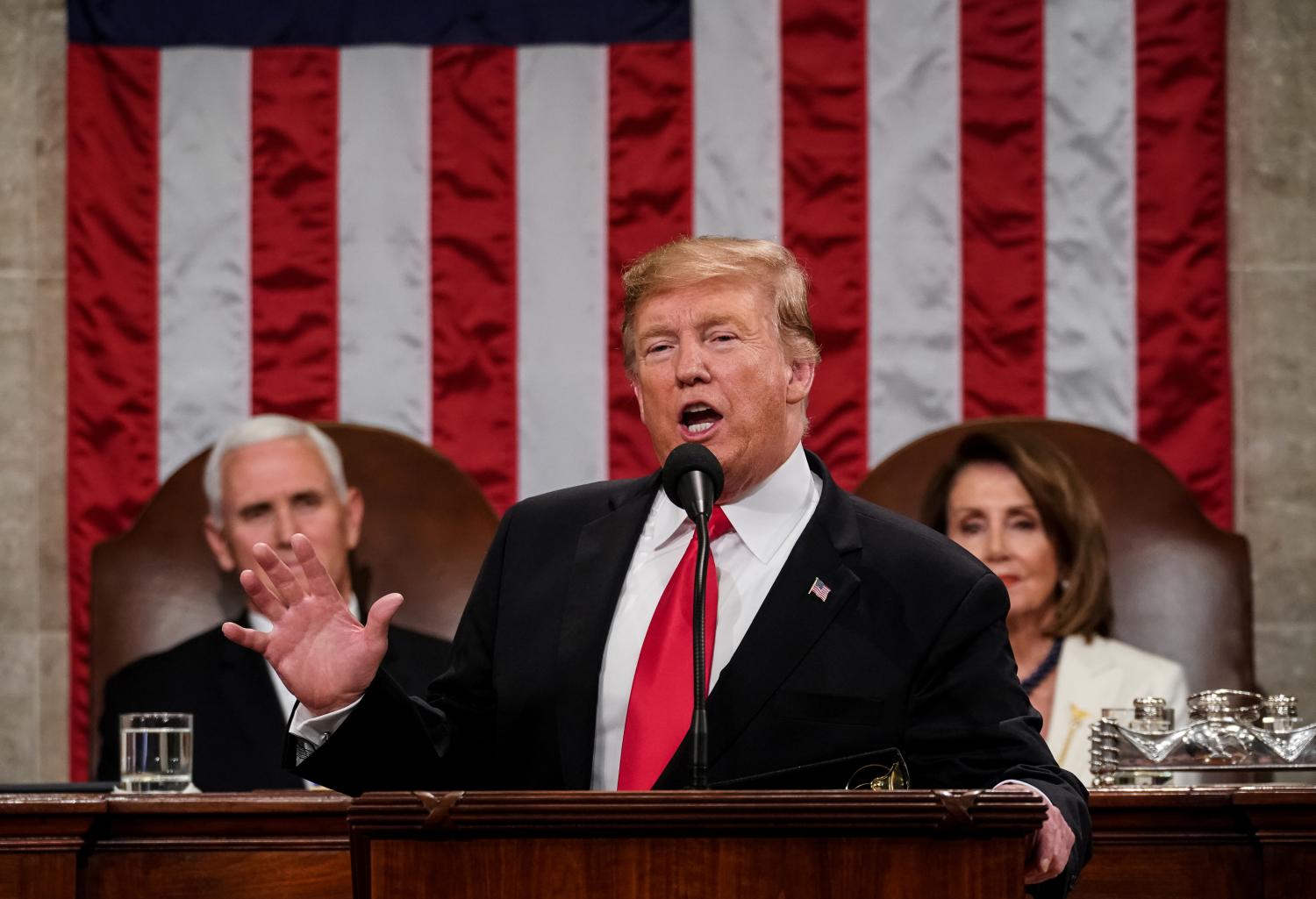
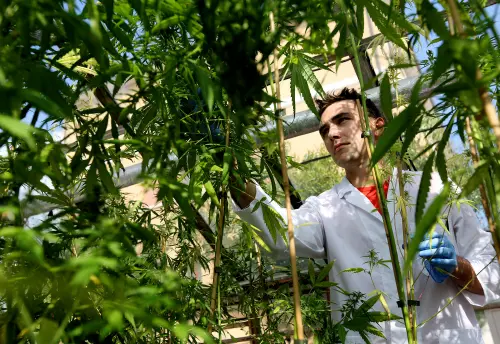
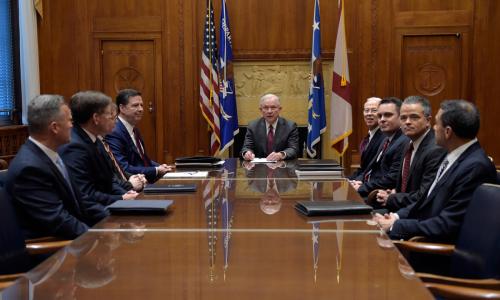
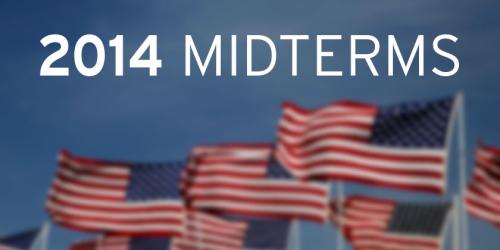




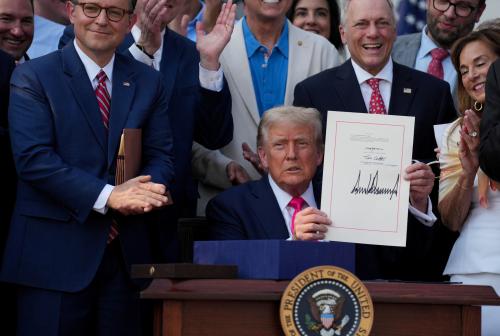
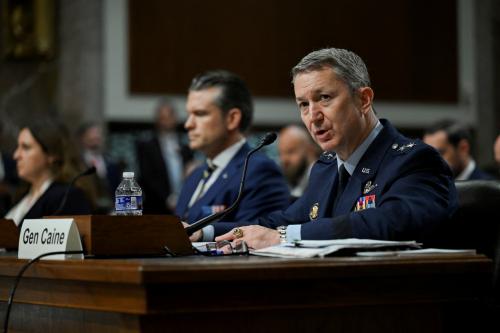

Commentary
Trump’s 1st State of the Union: His chance to be a states’ rights president
January 24, 2018